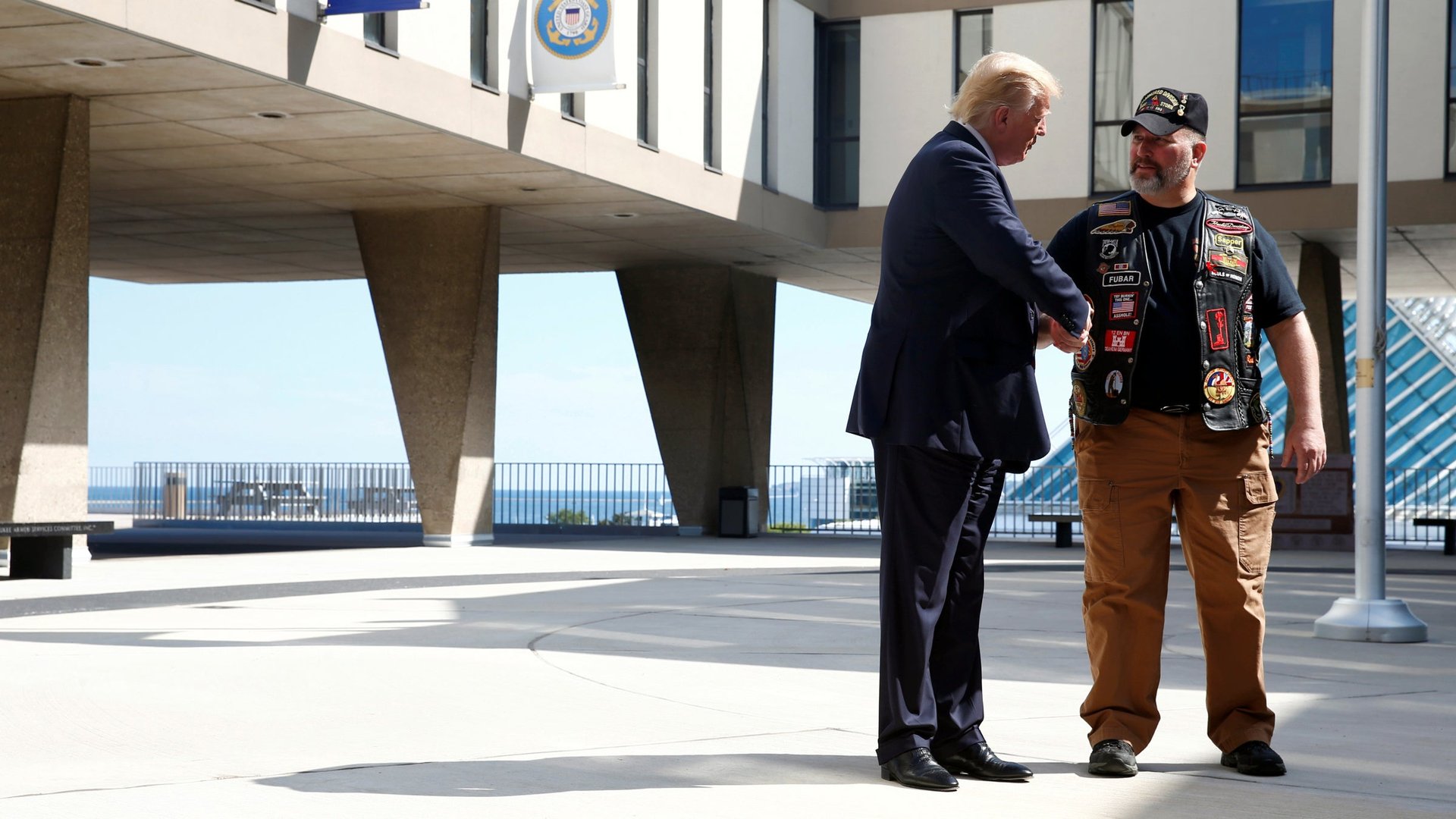Donald Trump’s merger with the Republican party has failed
Donald Trump’s decision to name an executive from the far-right website Breitbart as his top campaign operative is a turning point. With 82 days to go, the Republican nominee is abandoning any attempt at a traditional campaign aimed at the center of the country.


Donald Trump’s decision to name an executive from the far-right website Breitbart as his top campaign operative is a turning point. With 82 days to go, the Republican nominee is abandoning any attempt at a traditional campaign aimed at the center of the country.
The first stage of the Republican campaign, an epic surge through a crowded primary field, was pure Trump. But the last four months have been an attempt to merge Trump and the party he now represents. There was the April appointment of veteran GOP lobbyist Paul Manafort to run the campaign, the support thrown his way from party loyalists at the Republican national convention in July, and a series of staff-written speeches designed to emphasize Trump’s fealty to conservative bromides.
The merger has failed. The convention was a disaster, eroding Trump’s poll numbers and failing to convince conservatives he was one of them. And while Manafort’s connections to corruption investigations in the Ukraine and now in the United States have been an ongoing distraction, he simply hasn’t been able to rein Trump in.
Now, Trump, apparently angry at efforts to point him toward the median voter, is casting off the reins. His new campaign chief executive, Stephen Bannon, a former Goldman Sachs banker turned conservative activist, has backed populist Republicans like Sarah Palin and purveyed conspiracy theories at Breitbart, launching harsh criticisms of Republican leaders deemed insufficiently committed to the cause.
Of course, this is what Trump is already doing. It is the strategy that lead to his victory in the primaries.
But so far there is no evidence it is resonating with the general election crowd, as Clinton dominates recent public opinion surveys—to the point where her campaign is pulling ads to save money while expanding its field campaign into traditionally Republican strongholds like Georgia.
More than the tone, Bannon’s appointment to Trump’s campaign suggests that there will be no rapprochement with conservative leaders in Washington who have endorsed Trump while still seeking some measure of distance from him, like House speaker Paul Ryan and Senate majority leader Mitch McConnell.
That could have real consequences for Trump’s campaign. For weeks now, conservative operatives have debated how to share the party’s financial resources between Trump’s flailing presidential campaign and their efforts to retain majorities in the House and Senate. More than 100 Republicans signed an open letter to this effect last week. Already leaning toward protecting their Congressional wing, this further sign that Trump remains Trump will likely be enough for them to abandon their presidential candidate.